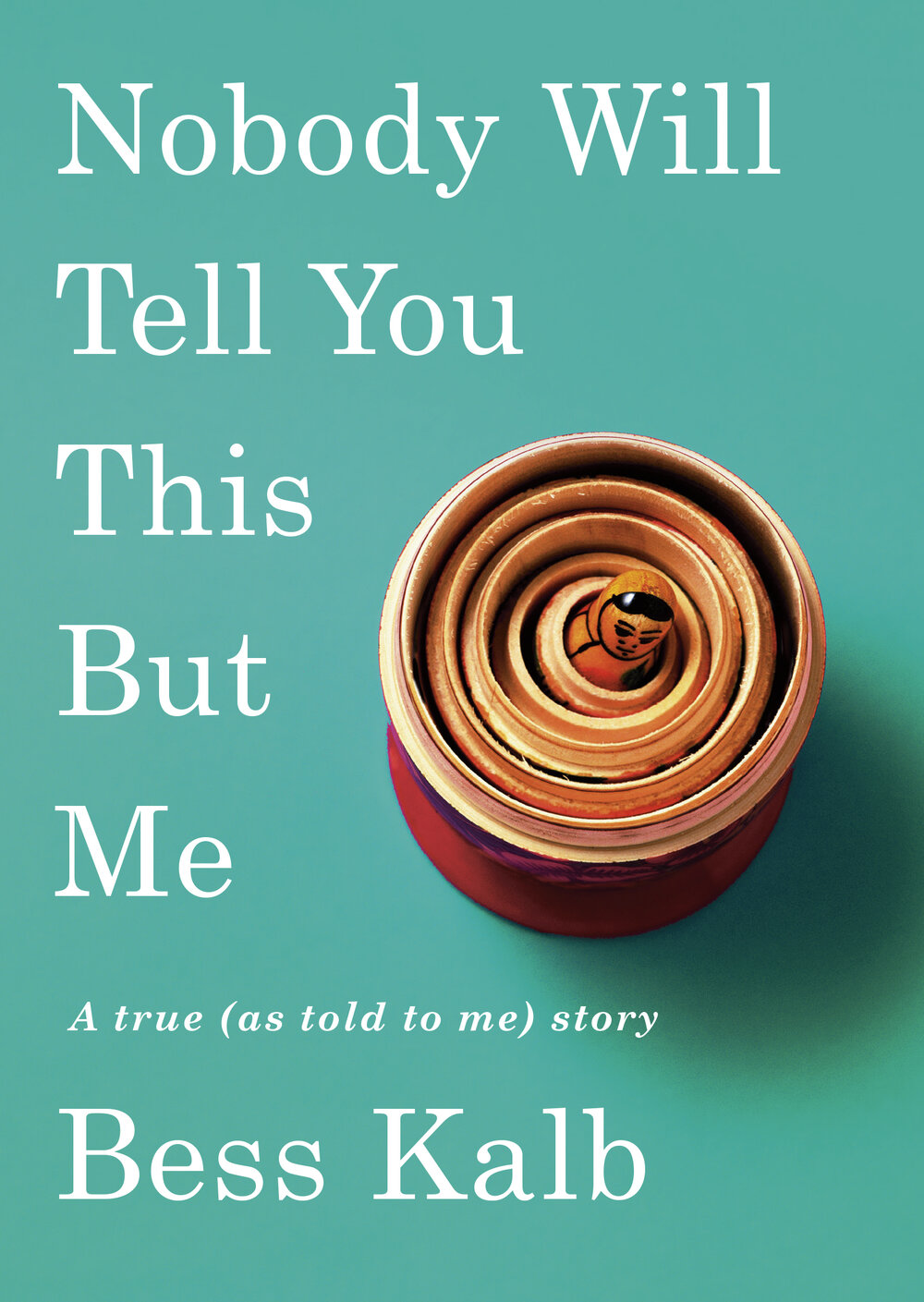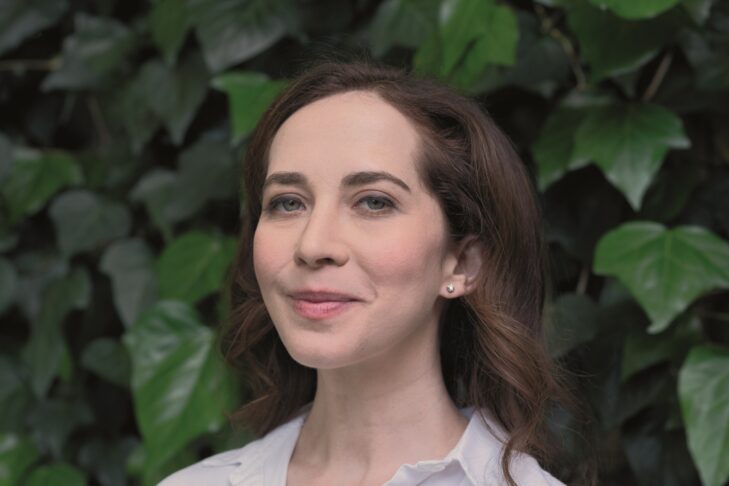An Emmy Award-nominated writer for “Jimmy Kimmel Live!” and a regular contributor to The New Yorker’s “Daily Shouts,” Bess Kalb virtually promoted her debut memoir, “Nobody Will Tell You This But Me,” last week.
Kalb was part of Harvard Book Store’s virtual event series; she was in conversation with her friend and college buddy Mike Birbiglia, a comedian, actor, writer and director. The two millennials chatted about life as new parents, comedy and what ultimately makes a funny shtick.
While Kalb’s book is bubbly, hilarious and poignant, the real star is Kalb’s late grandmother, Barbara Otis Bell. Known to all as Bobby, she’s the narrator of the book, which begins at her funeral. From her coffin, Bobby hears that Kalb is crying harder than Hank, Bobby’s husband of seven decades.
Bobby’s voice is by turns strong, inimitable and charming. She’s bursting with stories and opinions. Nothing escapes her attention. She tells us she was born on her mother’s dining-room table to avoid soiling the linens. She is the fifth child and only daughter of her indomitable mother, Rose. Rose fled the pogroms at the age of 12 and sailed alone into New York harbor. The single bit of guidance to carry her through the harsh journey was from a fellow traveler who told her to “ask another Jew for help.”
Born to her mother later in life, Bobby had four older brothers who doted on her. They were involved in every aspect of her life, from supervising her swimming lessons to cultivating her passion for reading. Through sheer persistence, she graduated from Hunter College at the top of her class. Although reared in poverty—her father was a union activist who never held down a job—Bobby continued to beat the odds and rise above her circumstances. By the end of her life, she was wintering in Palm Beach and spending summers in her Martha’s Vineyard home.
Interspersed throughout Bobby’s idiosyncratic narration are photographs, reconstructed conversations and transcribed voicemail messages. She gives her granddaughter advice on everything from watching her weight to how to dress. In one voicemail, she tells her granddaughter to buy a pea coat from the J.Crew catalogue: “You won’t look good in the camel color. Buy it in black.”

Bobby was self-conscious about her appearance. She frets over having big hips and a “shtetl face.” Touring the Metropolitan Museum of Art with Kalb as a child, she gives her a quirky art lesson as only Bobby can do: “You know how you can tell a Mary Cassatt? … She was kind to her subjects. She left out their hips.” Bobby also makes what she describes as a few cosmetic “adjustments. … I always detested my nose.” Along the same lines, she pays to have Kalb’s “deviated septum” repaired: “I looked in the mirror and I saw Russia.”
As for Bobby’s relationship with her daughter, Robin, she tells Kalb from the grave: “Your mother and I barely had a conversation from the time she was a very young child to when she announced she intended to leave the house at 16 years old. We had very little in common and neither of us had much of an interest in forcing anything.”
Bobby is hard on Robin. She has no patience for the latter’s teenage rebellions, which include her occasionally slacking off in school. But she’s also the mother that keeps a close eye on her daughter while she’s traveling in France. When Bobby realizes that she hasn’t heard from Robin in a couple of days, she calls the American hospital in Paris on a hunch and asks to be patched through to her room. It turns out that Robin has been hospitalized with meningitis. Bobby drives herself from her Westchester home to the airport and refuses to take no for an answer when told the next flight to Paris is sold out. She ends up sitting on a jump seat reserved for airline attendants. From start to finish, she’s in Paris in eight hours.
As Kalb notes, the mother-daughter relationship has skipped a generation in her family. When Kalb’s parents—both of whom are doctors—need help caring for Kalb during the week, Bobby commutes from Florida in the middle of the winter so she can be there to walk her granddaughter to preschool. She’s there every week from Monday to Friday for an entire year.
In a recent interview with Literary Hub, Kalb described her book as “a ghost memoir. It’s an autobiography told from beyond the grave. And, so, in a sense it’s my memoir, but in a truer sense, it’s my grandmother’s dictated memoir through me. It’s the story of her life and her mother’s life and her relationship with my mother and the story of our relationship, all in one book.”
It’s also a story of a deep intergenerational bond. In her author’s note, Kalb describes her book as an “explicitly matrilineal project.” As Bobby reminds her granddaughter, “You are the only daughter of an only daughter of an only daughter.”
Bobby is fierce and loving, and in the end, irreplaceable. When she died in 2017, a few weeks short of her 91st birthday, Kalb lost her best friend. “Nobody Will Tell You This But Me” is not only the story of an intensely devoted relationship between grandmother and granddaughter, but also a story of a deep love to be handed down through the generations.



